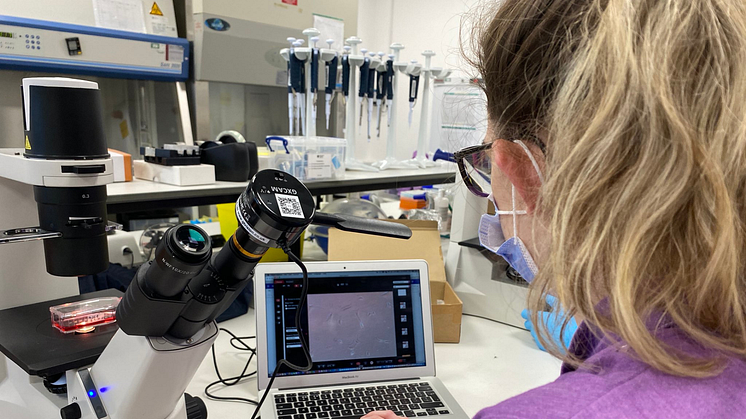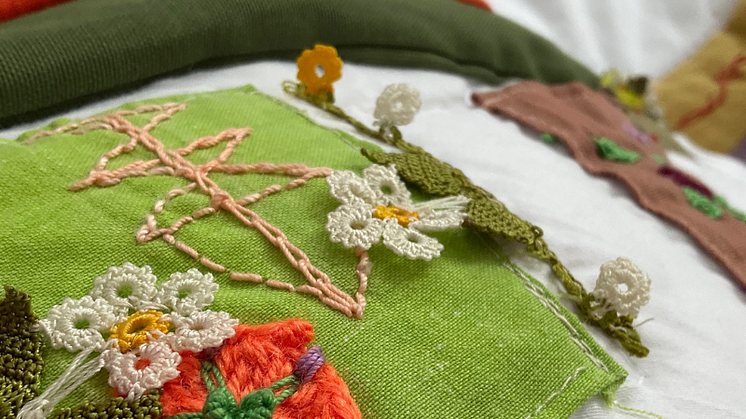
Press release -
Scientists are a step closer to finding a low toxicity treatment for childhood leukaemia
Newly published research carried out using synthetic human bone marrow cells is paving the way for the development of safer and kinder treatments for children with leukaemia.
Leukaemia is the most common cancer in children under 15, with over 650 children and young adults in the UK affected each year.
Research progress over the last few decades has dramatically improved survival rates, which are now over 80%.
However, treatment resistance and treatment toxicity remain major clinical challenges that urgently need resolving to further reduce lives lost from leukaemia and to prevent life-altering side effects of drugs used in cancer treatment.
A new study conducted by experts at Newcastle University, Northumbria University, The Princess Máxima Center for Pediatric Oncology and the University of Glasgow has revealed an innovative way of mediating these challenges. Currently in its early stages, such research could in years to come lead to anti-cancer treatments that mitigate side effects but show improved efficacy.
By using a low toxicity drug which has not previously been used to treat leukaemia and combining it with dexamethasone – a drug which is routinely given to cancer patients – scientists found that the treatment was more effective in killing leukaemia cells and the combination did not cause any added toxicity.
To test this method of treatment, the team, led by Dr Deepali Pal, who started the study at Newcastle University and is now at Northumbria University, developed an artificial bone marrow using human stem cells to study the interaction of leukaemia cells with its surrounding, known as the ‘cancer niche’. Crucially, investigating cancer biology and consequently treatments using this novel human relevant and sustainable approach is helping to replace the use of animals in cancer research.
Findings from the study, which was funded by the National Centre for the Replacement Refinement and Reduction of Animals in Research (NC3Rs), the Children's Cancer and Leukaemia Group (CCLG) and Cancer Research UK have been published today in open-access journal Cell Reports Medicine.
Dr Deepali Pal, previously an NC3Rs Fellow at Newcastle University and now Assistant Professor in the Department of Applied Sciences at Northumbria University, said: “We developed a New Approach Methodology (NAM) or non-animal approach to replace and reduce the use of animals in cancer research. We show that this NAM made of synthetic human bone marrow cells enables us to study patient-derived leukaemia cells in a clinically relevant manner.
“We have also studied how the leukaemia cells interact with its surrounding bone marrow cells and consequently detect a potential new low toxicity treatment for leukaemia. Our aim is to continue developing such human relevant sustainable techniques that limit the use of animals in medical research to find safer and kinder anti-cancer treatments.”
Northumbria University has recently gained reinforcement of its already outstanding reputation for excellence in research, having been ranked 8th in the UK for research power for professions allied to health, such as cellular and molecular sciences, in the latest Research Excellence Framework (REF2021).
The paper, entitled ‘hiPSC-derived bone marrow milieu identifies a clinically actionable driver of niche-mediated treatment resistance in leukemia’ and a full list of authors can be found online at https://www.cell.com/cell-reports-medicine/home.
Topics
Categories
Northumbria is a research-intensive modern university with a global reputation for academic excellence. Find out more about us at www.northumbria.ac.uk --- Please contact our Media and Communications team at media.communications@northumbria.ac.uk with any media enquiries or interview requests ---








